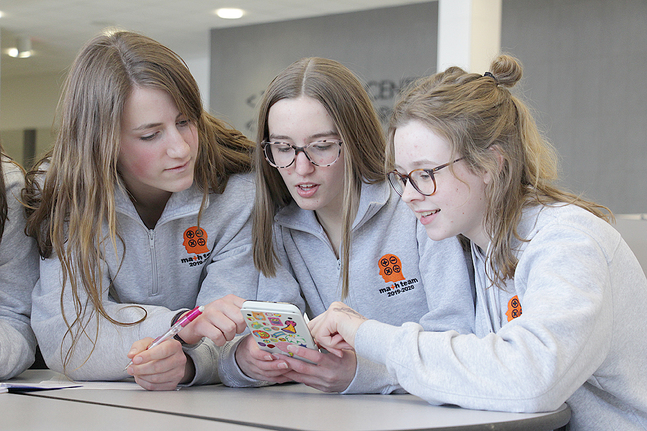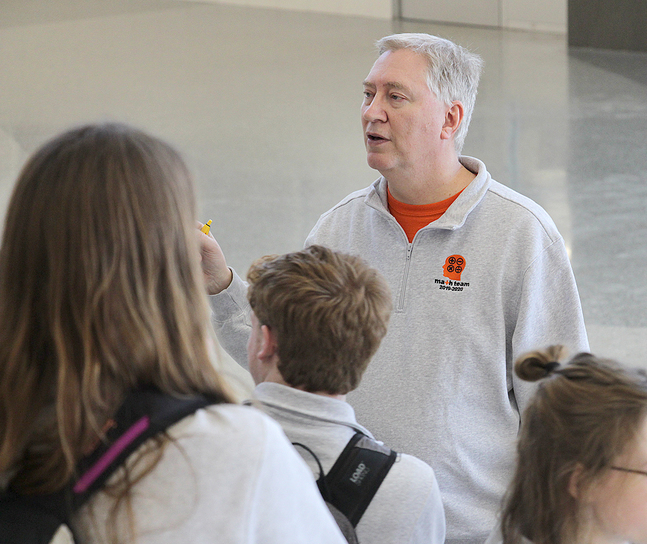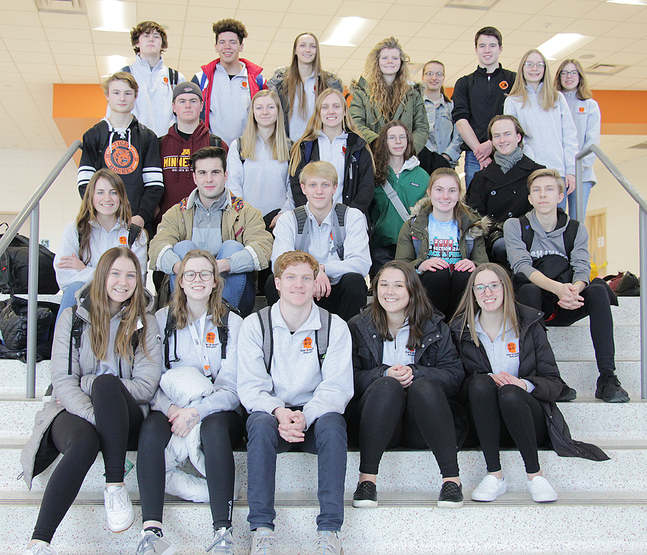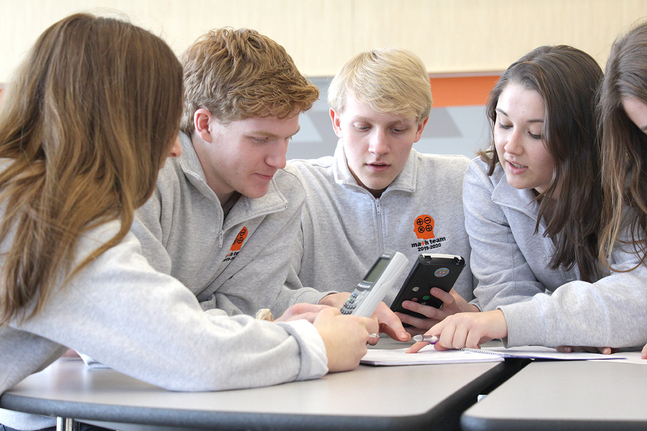DHS students enjoy Math Team
Posted on: Mar 23, 2020
The DHS math team completed its season last month with a final conference meet at Lakeville South High School.
While the Tigers did not advance to state, they did take third place in their eight-team conference, and Dylan Tieg (sixth place as an individual) and Jaxon Duberstein (10th place individually) earned all-conference honors for being among the top 10 individual scorers.
Participation, benefits
Senior Helena Schafer was persuaded to come out for the math team by Shouts and her friend, fellow senior Jennifer Almquist. Though she was only part of the team for one season, Schafer said she was able to tell that it made a difference for her in her math classes.
“The team has really helped me solve problems in different ways and approach things with a more critical eye,” she said. “I’m not really great at math, but it has helped me see that I can do more than I know I can.”
“She’s better at math than she thinks she is,” said longtime Math Team coach Jerry Shouts.
Senior Ethan Williams decided to try out Math Team four years ago, and has stuck with it ever since.
“I had been around the block of sports for a long time and decided it wasn’t my thing, so I started moving more toward the academic side of competition,” he said. “I found out about the Math Team so I tried it out and I had a blast.”
Williams also said that aside from a fun and fairly casual activity to enjoy with friends, the academic benefits are noticeable.
“It makes you more broadly versed because you have to practice so many different things,” he said. “It helps you think outside the box a little bit more because you have a wider umbrella of math things in your working memory.”
How it works
While there are no pre-requisites to join the team, Shouts said that a majority of members are in advanced math classes.
At meets, each school designates eight “starters” to compete for points in four individual and one team event, while all other members of the team are able to compete as individuals, earn their own scores and try to work their way into the starter group.
There are five conference meets each season, which stretches from November to the state meet in March, with about three weeks for practice sessions between competitions. The Delano team practices once a week as a group on Monday evenings, and Shouts also provides individual study packets to interested students who may want to put in extra work on their own.
Each meet has a broad topic, and practice sessions allow Shouts to share applicable formulas and strategies.
“They give you a general idea of what the topics are, but it covers a very broad spectrum of materials,” said Shouts.
Longtime coach
Shouts has coached the Delano Math Team since its inception 31 years ago. The team has almost always been competitive, and once reeled off a 10-year run of first-place conference finishes leading to state appearances. In 2010 the team took third place at state, and at its height it had about 85 students involved, requiring two buses to travel to meets.
“Our first few years we were kind of average. Then we were really strong for a while,” said Shouts. “Not only did we take first place 10 years in a row, but during that time we won 20 meets in a row, and then we had a second place, and then we won another 20 meets in a row. So we won 40 out of 41 meets.”
This year the team has about 30 members, and managed to finish third in the conference despite entering the season with just one returning “starter” from last year’s team.
“We have plenty of young kids, so looking at next year I feel like our team should be much stronger,” Shouts said, adding that he may step down from coaching next year in order to be available to help whoever takes over the program.
Shouts said he originally switched from coaching basketball and softball to Math Team because it was an intriguing opportunity and because it didn’t require the same amount of time away from home. There were far fewer teams in the state then, but now there are around 250.
Although some might think Math Team simply sounds like more school work, Shouts said it usually hasn’t been overly difficult to recruit team members, particularly because of his position as an advanced math teacher, and because of the program’s strong history.
“More than half of my job is getting the right kids on the team,” he said. “There are plenty of smart kids in each school, but if they don’t go out for the team (that doesn’t help you in competition).”
While students enjoy the camaraderie and the pizza after meets, the subject and the challenge alone seems to be a draw for students.
“There is a core group of kids who just legitimately enjoy math or competition,” said Shouts. “It can be hard to describe to people who aren’t into math, but it’s fun.”
Post Categories: High School



